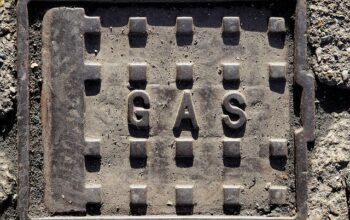Ontario’s utility trailer regulations can be complex, but understanding them is crucial for safe operation and legal compliance. This comprehensive guide aims to navigate you through buying, registering, licensing, insuring, and maintaining a utility trailer in the province. From essential safety guidelines to practical tips, this article will equip folks looking to buy utility trailers with the knowledge needed to make informed decisions and ensure hassle-free ownership.
- Understanding Ontario's Utility Trailer Regulations: An Overview
- Buying a Utility Trailer in Ontario: What You Need to Know
- Registration, Licensing, and Insurance Requirements
- Safety Guidelines and Maintenance Tips for Utility Trailers
Understanding Ontario's Utility Trailer Regulations: An Overview
Ontario’s Utility Trailer regulations are designed to ensure safety and responsible usage of these versatile vehicles. If you’re planning to buy utility trailers, understanding these rules is paramount. These regulations cover various aspects, from size and weight restrictions to lighting and signaling requirements. Adhering to these guidelines not only keeps roads safe but also helps avoid fines and potential legal issues.
Key considerations include trailer classification, registration, and licensing. Ontario categorizes utility trailers based on their gross vehicle weight rating (GVWR), with specific rules applying to each class. Proper documentation and inspections are essential for legal operation. By familiarizing yourself with these regulations, you’ll ensure a smooth experience when buying and using your utility trailer, enhancing safety and efficiency on Ontario’s roads.
Buying a Utility Trailer in Ontario: What You Need to Know
When considering buying a utility trailer in Ontario, it’s crucial to understand the specific regulations that govern their use and sale. The province has established guidelines to ensure safety and accountability for all trailers on the road. Before making a purchase, buyers should familiarize themselves with these rules, which cover aspects like registration, licensing, lighting requirements, and weight restrictions.
Ontario requires that all utility trailers be registered and properly licensed, just like motor vehicles. Buyers must also ensure their trailer meets the province’s lighting standards to enhance visibility on the road. Additionally, understanding the maximum allowable gross vehicle weight (GVW) is essential, as it dictates the type of vehicle you can tow with your trailer and ensures safe operation.
Registration, Licensing, and Insurance Requirements
When you decide to buy utility trailers for your business or personal use in Ontario, understanding registration, licensing, and insurance requirements is essential. In Ontario, all utility trailers must be properly registered with the Ministry of Transportation (MTO). This involves filling out necessary paperwork and providing proof of ownership, much like registering a motor vehicle. Additionally, obtaining the right licenses is crucial. Depending on your trailer’s weight and intended use, you may need a Commercial Vehicle Operator’s License (CVO) or specific permits for hauling certain types of cargo.
Insurance is another critical aspect. As per Ontario law, utility trailers require insurance coverage, including liability and collision protection. Ensure that your policy covers the value of the trailer and any equipment attached to it. When buying a utility trailer, consult with insurance providers to understand what coverage options are best suited for your needs. This proactive approach will help ensure smooth navigation through Ontario’s regulatory framework when utilizing your new purchase.
Safety Guidelines and Maintenance Tips for Utility Trailers
When buying utility trailers, safety should always be a top priority. Ontario’s regulations outline specific requirements for trailer lighting, brakes, and overall construction to ensure safe operation on public roads. Regular maintenance is key to upholding these standards. Implement a routine inspection checklist that includes checking tire pressure and wear, examining brake systems, securing cargo properly, and verifying all electrical connections are secure and functioning correctly.
Proper trailer maintenance not only ensures compliance with Ontario’s regulations but also extends the lifespan of your investment. Always keep a detailed log of service and repairs for tracking purposes and to demonstrate due diligence in case of inspections. Remember, a well-maintained utility trailer is a safer one, benefiting both you and other road users.
Navigating Ontario’s utility trailer regulations is essential for anyone looking to buy utility trailers. By understanding the overview, knowing the buying process, and adhering to registration, licensing, insurance, safety, and maintenance guidelines, you can ensure a smooth experience. Remember that compliance is key to a hassle-free journey, so take a dive into these regulations to make informed decisions when purchasing your next utility trailer.




